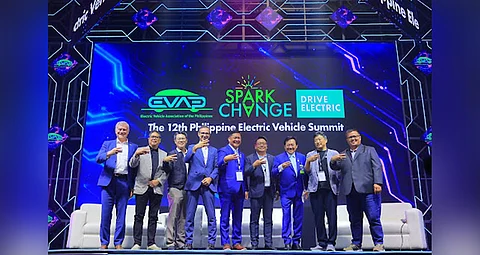
- NEWS
- the EDIT
- COMMENTARY
- BUSINESS
- LIFE
- SHOW
- ACTION
- GLOBAL GOALS
- SNAPS
- DYARYO TIRADA
- MORE

The Electric Vehicle Association of the Philippines (EVAP) is urging the government to reinforce policies that support the country’s growing electric vehicle (EV) industry. This push comes as EV sales hit record highs in 2024. Data from the Land Transportation Office (LTO) shows 10,001 newly registered electrified vehicles in the first half of the year, nearly matching the 10,388 units recorded for all of 2023. The sharp rise in EV registrations highlights the growing demand and the need for sustained policy support.
Edmund Araga, president of EVAP, emphasized the need for continued government action to further accelerate the transition to sustainable mobility. “The strong growth in EV sales is a positive sign, but we need to ensure that this momentum is backed by long-term policies and investments. Now is the time to solidify our commitment to electrification and create an ecosystem where EV adoption is practical, convenient and beneficial for all,” Araga said.
The surge in EV adoption coincides with the implementation of the Electric Vehicle Industry Development Act (EVIDA), which requires government agencies and corporations to maintain a 5 percent EV fleet. EVAP is advocating for further measures, including broader import tax exemptions on EV components, increased subsidies for buyers, and faster expansion of public charging infrastructure. While the country currently has 500 operational charging stations, industry estimates indicate that at least 5,000 will be needed by 2030 to keep up with demand.
Filipino drivers are increasingly viewing EVs as a practical alternative to traditional fuel-powered cars. AC Mobility Holdings Inc., the official distributor of BYD passenger vehicles in the Philippines, reported nearly 5,000 BYD units sold in 2024, securing an 82 percent share of the country’s New Energy Vehicle (NEV) market. This underscores the rapid shift toward EV adoption, fueled by growing consumer interest and a wider range of available models.
EVAP remains actively engaged with the government and private sector to boost public awareness and tackle concerns about EV range, charging access and cost efficiency. The recently concluded 12th Philippine Electric Vehicle Summit (PEVS) served as a vital platform for industry players, policymakers and consumers to collaborate on solutions and innovations shaping the future of EVs in the country.
“Many Filipinos are still hesitant about making the switch due to concerns about range, charging accessibility and upfront costs,” Araga said. “Through continuous education and incentives, we can show that EVs are not just the future — they are already here, and they make economic and environmental sense.”
EVAP remains committed to ensuring that the Philippines keeps pace with global trends in sustainable transportation, with the goal of achieving 50 percent EV adoption in new vehicle sales by 2040, in line with ASEAN’s electrification targets.
